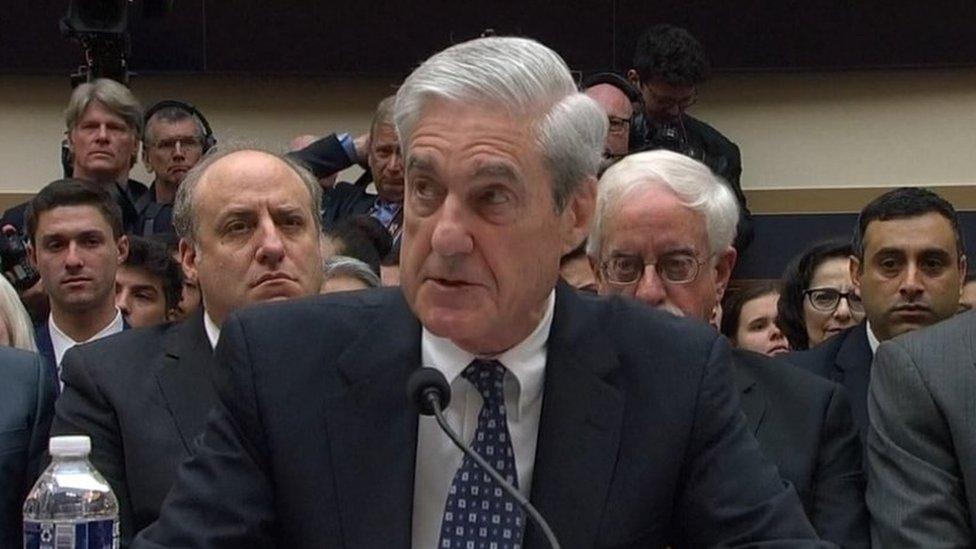Trump asked Australian PM to help investigate Russia inquiry
- Published
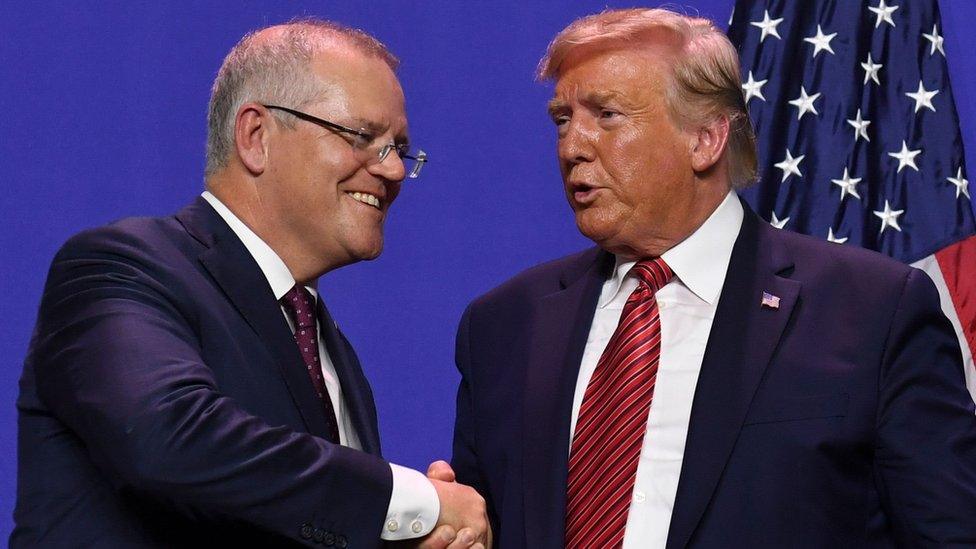
Scott Morrison and Donald Trump have forged a close relationship
US President Donald Trump called Australian PM Scott Morrison and asked for his help with an investigation into the origins of the Mueller inquiry, Australian officials have confirmed.
Mr Trump asked Mr Morrison to help find evidence to discredit the inquiry, US and Australian media reported.
Australia confirmed the call had taken place and that the PM agreed to help.
The revelation comes as Mr Trump faces impeachment proceedings at home over a call with another foreign leader.
The president is accused of pressuring the leader of Ukraine to investigate domestic political rival Joe Biden, in a phone call which was exposed by a whistleblower last week.
The call spurred Democrats to launch impeachment proceedings, and on Monday the president's lawyer Rudy Giuliani was served with a subpoena.
Meanwhile, the Washington Post has reported that US Attorney-General William Barr held private meetings with Italian and British intelligence officials to ask for assistance in the investigation of the Mueller inquiry.
A source told the paper Mr Barr visited Italy last week, and not for the first time.
Why is Australia move controversial?
The transcript of the call between Mr Morrison and Mr Trump was restricted within the White House to a small number of the president's aides, reports said - contrary to normal protocol.
The same restrictions were reportedly placed on the Ukraine call, raising concerns that White House staff were attempting to conceal records of the president's conversations with certain foreign leaders.
The president has been under increased scrutiny over his interactions with foreign leaders since impeachment proceedings began.
Trump in July: 'Mueller didn't have any material to work with'
The Mueller inquiry investigated whether Mr Trump colluded with Russia in the 2016 presidential election. Its findings, released in April, did not establish that the Trump campaign criminally conspired with Russia to influence the election.
But the findings did not exonerate the president of collusion, and the Mueller report outlined an extensive obstruction-of-justice case against the president.
The inquiry infuriated Mr Trump and he relentlessly criticised it as a "witch hunt". In May he announced that Mr Barr would look into how the inquiry originated.
Questions have also been raised about Mr Barr's personal involvement in the investigation and the fact that he has in turn closely involved Mr Trump - it was he who asked the president to facilitate contact with foreign officials.
How is this different from the Ukraine phone call?
One of the key allegations that led to impeachment proceedings was that Mr Trump had made it clear Ukraine should "play ball" in investigating Mr Biden and his son, the implication being that otherwise Kiev would not receive $400m (€367m; £325m) in military aid.
There was no such issue of military aid linked to the call with Mr Morrison.
Also, while the Ukraine call is linked to the serious issue of potential influencing of an upcoming US election, the Australian one refers to events around a past election.
White House spokesman Hogan Gidley suggested this was uncontroversial.
"I'm old enough to remember when Democrats actually wanted to find out what happened in the 2016 election," he said.
What did Australia say?
Australia's ambassador to the US, Joe Hockey, wrote to the White House shortly after Mr Trump's announcement offering to help with any review, Australian media reported.
In a statement on Tuesday, the Australian government said it had "always been ready to assist and co-operate with efforts that help shed further light on the matters under investigation".
"The PM confirmed this readiness again," the statement said.
Australia's conservative leader is among Mr Trump's closest international allies and received the rare honour of a state dinner at the White House last week.
The call which discussed the Mueller investigation took place shortly before that visit, according to the New York Times.
How is Australia linked to Trump-Russia inquiry?
The Trump-Russia investigation was partly triggered by Australian officials communicating a top diplomat's concerns to the FBI.
Alexander Downer, then Australia's High Commissioner to the UK, said former Trump adviser George Papadopoulos had told him in May 2016 that Moscow had incriminating "dirt" on Hillary Clinton.
Why was Australia's PM invited for a state dinner at the White House?
"He said... that the Russians might release some information, external which could be damaging to Hillary Clinton," Mr Downer later told the Australian Broadcasting Corporation.
Mr Papadopoulos denies ever discussing such details. He served a two-week jail sentence in 2018 after pleading guilty to lying to the FBI about meetings he had with alleged go-betweens for Russia.
- Published20 September 2019
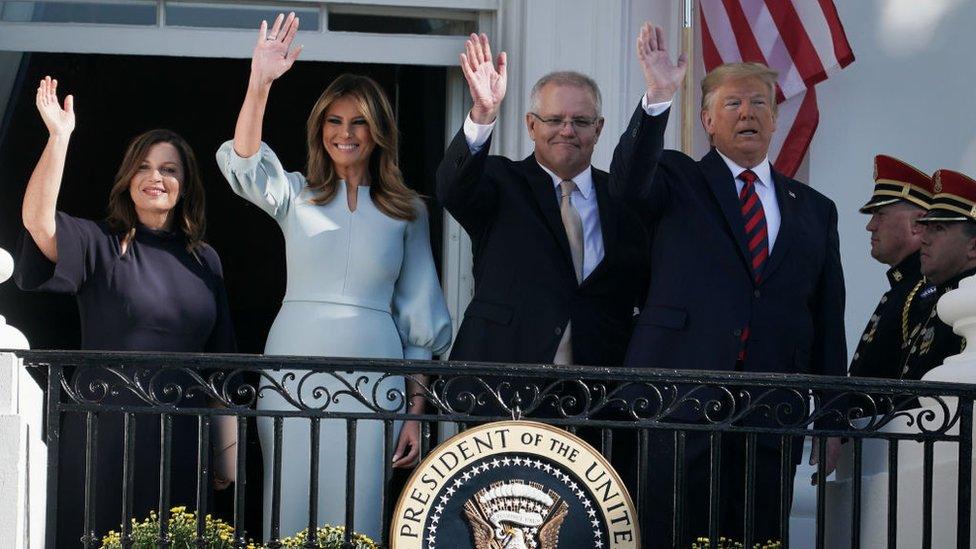
- Published24 July 2019
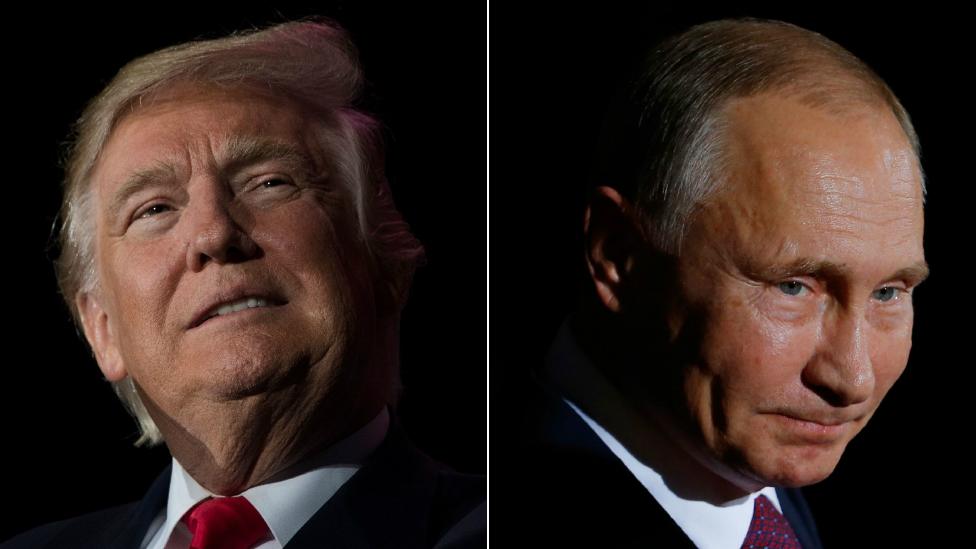
- Published24 July 2019
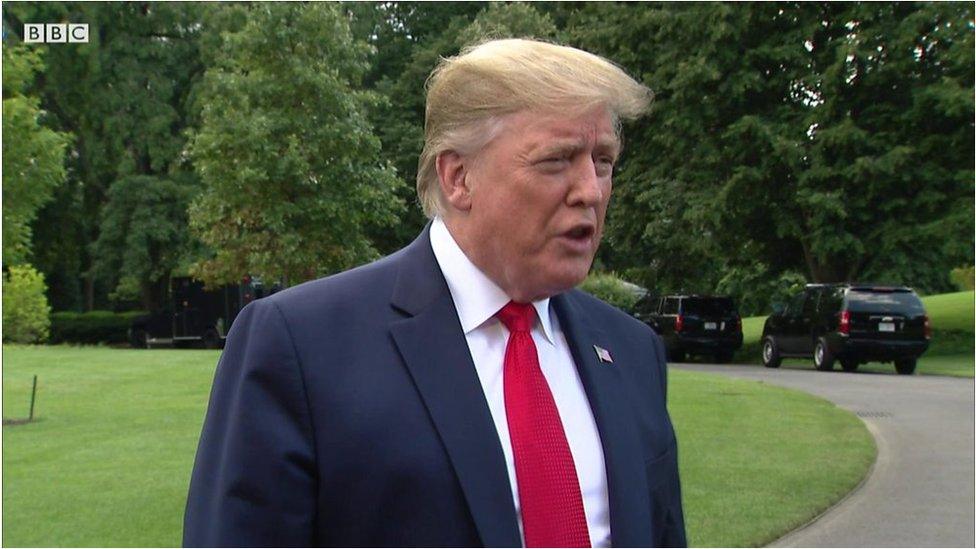
- Published25 July 2019
